Startup Nation Central
Annual Report 2024
THE POWER OF SCALE: Israeli Tech Global Edge

Including commentary by:
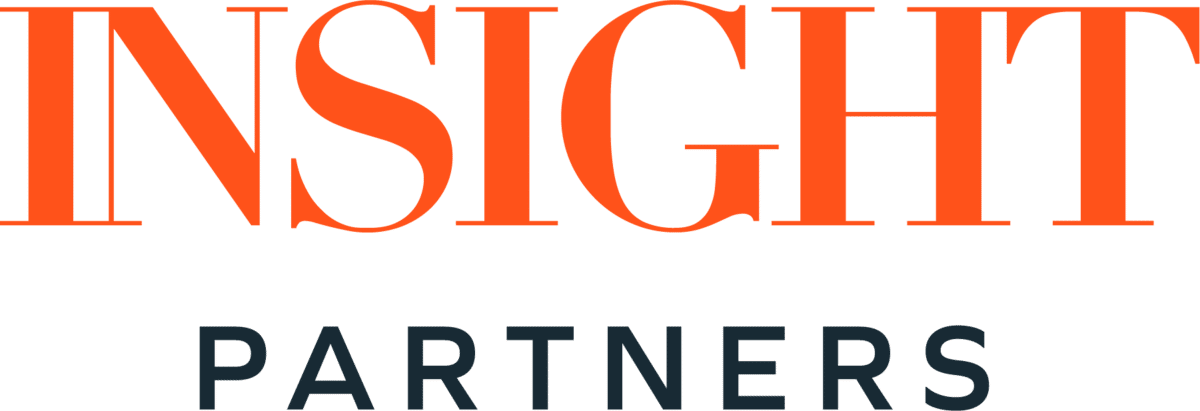


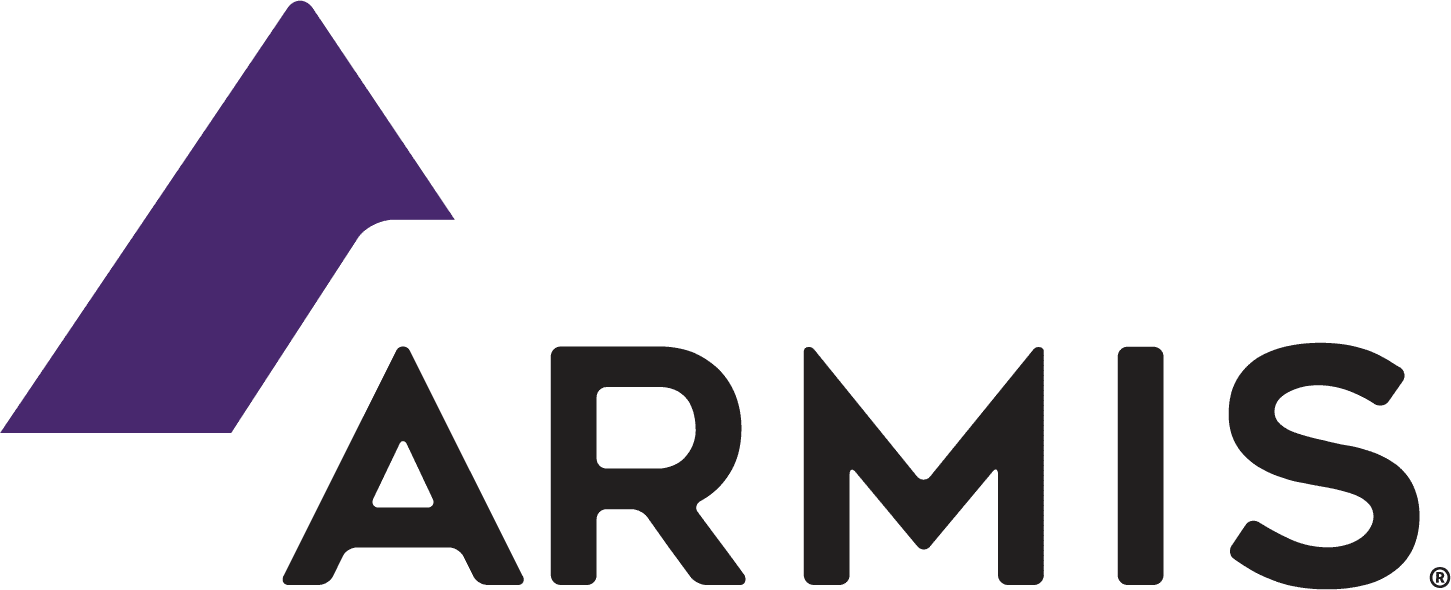



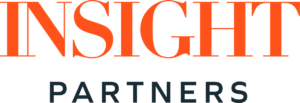


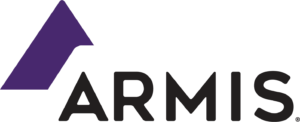


CONTENT
INTRODUCTION
Foreword

Avi Hasson
Startup Nation Central
CEO
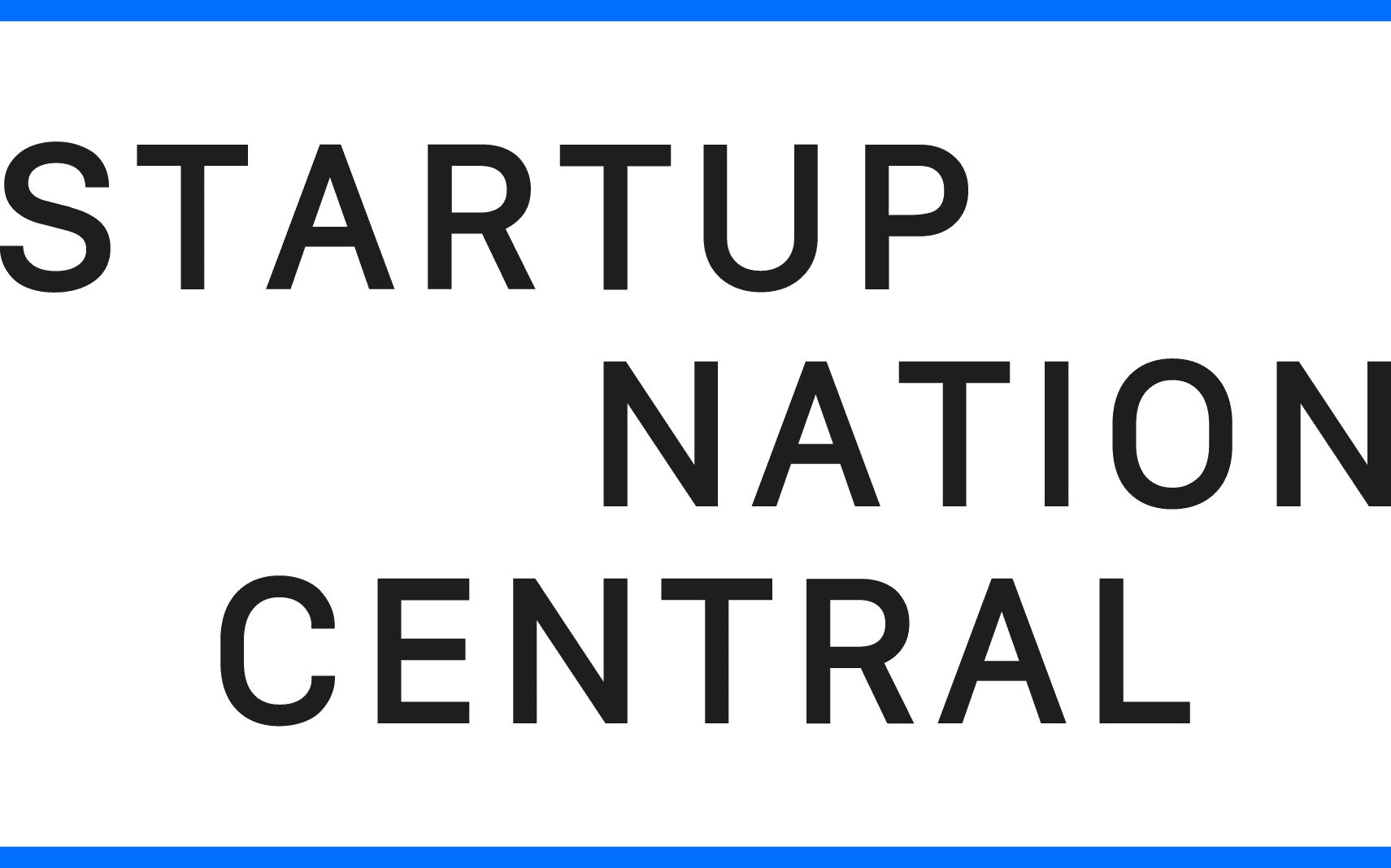
In 2024, Israel solidified its position as a global scale-up powerhouse. Despite ongoing war and geopolitical tensions, the tech ecosystem achieved remarkable milestones—unexpected funding levels, high-value M&A deals, and stellar performance by public companies. This resilience stems from Israel’s relentless drive for innovation, bolstered by the growing maturity and sophistication of the ecosystem.
Scaling is no longer just about unicorns. Growth now comes from strategic acquisitions, record-breaking funding rounds, and increased global integration, with Israel serving as a hub for multinational R&D. However, sustaining this momentum requires addressing critical challenges like fostering academic research, early-stage innovation, preparing for the AI revolution, and ensuring long-term economic stability.
This year reinforced a vital truth: global investment and technology trends often outweigh local challenges, cementing Israel’s leadership in cybersecurity, health tech, and climate tech. But maintaining this edge demands proactive policies, strategic investments, and a focus on new growth engines.
The story of 2024 is one of resilience, adaptation, and ambition. By tackling challenges head-on, Israeli tech will continue to set benchmarks for global innovation. This is the power of scale.
Executive Summary

Yariv Lotan
VP of Digital Products,
Development,
Data and Insights

In a year as complex and dynamic as 2024, Israel’s tech ecosystem once again demonstrated its resilience and adaptability. Despite domestic uncertainties and geopolitical tensions, one key insight stands out: global dynamics—especially U.S. investment trends—consistently overshadow local challenges, enabling Israel to thrive as a global hub for innovation, investment, and leadership in critical sectors like cybersecurity. Equally important is the recognition that Israel’s tech ecosystem has evolved beyond being a production line for early-stage startups. It has matured into a scale-up powerhouse, bolstered by the active participation of leading multinationals.
The 2024 Story
Israel’s High-Tech Sector is Thriving Against the Odds
- Economic Contribution: The Israeli tech ecosystem, with a GDP share double that of the U.S. tech sector, led Israel’s economic growth with a 2.2% increase in high-tech GDP (Q1–Q3 2024), while the overall economy contracted by 1.5%. Read More
- Private Funding Growth: Israeli tech companies raised over $12 billion in 2024, marking a 27% year-over-year increase. Read More
- Global Perspective: This trend in funding rounds and amounts is aligned with the U.S. VC trends and outpaced Europe and Asia. Read More
- Early-Stage Activity: Early rounds (pre-seed to Series A) accounted for 80% of deals, while late-stage funding saw its dollar volume peak, nearing 2021 levels. Read More
- MNC Activity: Multinational corporations increased M&A activity in Israel, including several high-value deals, while their private investments showed steady performance throughout 2024. Read More
Beyond Startups: Building Israel’s Scale-Up Powerhouse
- Transformation: Israel’s tech ecosystem is shifting from a startup focus to a scale-up powerhouse, characterized by larger funding rounds, a growing number of mature companies, and increased acquisition-driven exits.
- Acquisition Activity: Israeli scale-ups have evolved from acquisition targets to active acquirers, building broader ecosystems and driving sustained growth and value creation. Larger acquisitions reflect not only the significant capital invested but also the readiness of these companies to scale and compete globally.
- Market Performance: An equal-weight index of the top 70 Israeli tech companies (valuation of over $50M) traded on NASDAQ rose by 15.8% in 2024, outperforming the NASDAQ 100 equal-weight index, which increased by 9.4%. Read More
- Revenue and Efficiency: Israeli public companies listed on NASDAQ demonstrated resilience, consistently delivering revenue growth and improving productivity despite the external challenges of 2024. Read More
- Mega-Rounds: In 2024, Israeli tech saw 15 mega-rounds totaling $4 billion, accounting for 41% of total funding. This marks a sharp rise from 2023’s 9 rounds and $2 billion (22%), showcasing the strength of the scale-up ecosystem and the ability of established companies to attract substantial global investment. Read More
Global Cybersecurity Dominance and the Emerging Defense Sector
- Global Leadership: Israel’s cybersecurity sector continues to dominate globally, with private funding equaling over 40% of U.S. cybersecurity funding. Half of the world’s top 10 cybersecurity companies were founded by Israelis, with seven maintaining R&D centers locally. Notably, all 10 leaders have acquired Israeli cybersecurity firms in recent years, highlighting Israel’s central role in global innovation.
- Round Sizes: The median funding round in cybersecurity was more than double the average across Israel’s tech ecosystem, reflecting the sector’s strategic importance and robust investor confidence. Read More
- Alignment with Defense Trends: Israel’s cybersecurity ecosystem is tightly integrated with the broader defense sector, addressing a range of threats from state-sponsored cyberattacks to the protection of critical infrastructure. This alignment cements Israel’s position as a global leader in tackling the interconnected challenges of security and defense in an increasingly volatile world. Read More
A Record Year for M&As in Israel
- Record Performance: 2024 marked Israel’s strongest year for acquisition-driven exits, with total event values approaching record highs. Read More
- Strategic Role: Israeli companies played a growing role in larger event sizes, showcasing their strategic importance and financial strength in the global market. Read More
- Multinational Activity: Acquisitions by multinationals with R&D and innovation operations in Israel reached new heights, further emphasizing the country’s significance as a hub for global technology and innovation. Read More
Challenges Facing the Ecosystem
While these achievements underscore the strength of Israel’s tech ecosystem, several challenges must be addressed to ensure sustained growth:
- Declining Startup Formation: The global trend of fewer newly founded startups is taking a toll on Israel’s pipeline of innovation. While the quality of existing companies remains high, the declining quantity of new entrants limits the diversity of future opportunities.
- Fewer Investment Rounds: A reduction in the number of investment rounds constrains early-stage innovation, shrinking the pipeline for new technologies. Balanced grants and incentives could help foster more opportunities for early-stage companies.
- Judicial and Economic Uncertainty, and Regional Instability: Judicial and economic uncertainty, alongside regional instability, poses significant risks to Israel’s competitiveness as a global tech hub. Investor confidence is challenged by unclear judicial reforms and economic policies, while regional instability increases perceived risks for global partners. Clear strategies and long-term planning are essential to maintaining Israel’s leadership in the global tech ecosystem.
- Sectoral Breadth Under Pressure: Israel’s historically diverse range of innovation sectors is narrowing due to reduced funding for startups in emerging areas. Providing targeted incentives to investors and multinationals could help sustain growth across sectors.
- The AI Industrial Revolution: As AI reshapes industries globally, Israel must secure resources, talent, and R&D capabilities to remain competitive. Proactive government support, strategic focus, and agile regulation will be essential to foster growth in this transformative sector.
The Government’s Role in Securing Israel’s Tech Future
The Israeli government has a critical role in shaping the long-term success of the tech ecosystem. Effective support can be achieved through three strategic actions:
- Minimizing Uncertainty: Address political and economic instability by establishing clear targets and implementing consistent, predictable policies that bolster investor confidence.
- Investing in Infrastructure: Strengthen the foundation of innovation by improving the education system, funding academic research, supporting innovation labs, and offering loans and grants to startups. These investments are essential for cultivating the talent and technologies needed to maintain global competitiveness.
- Providing Incentives: Introduce tax benefits and targeted incentives to attract investors and multinational corporations. High-tech growth generates significant income tax revenue, and incentivizing this sector will ensure sustained contributions to the national economy.
At present, these measures are insufficiently prioritized in Israel. The absence of a comprehensive long-term plan, weakening education systems, and underinvestment in academia and industry are eroding the nation’s competitive edge. Without immediate and decisive action, Israel risks falling behind global leaders in transformative fields like AI, quantum technologies, and other emerging industries critical to the future of innovation.
2025 Forecast Outline
- US Influence: U.S. economic and financial trends will continue to shape Israel’s tech ecosystem performance.
- Cautious Optimism: Investors will focus on high-quality opportunities in sectors with long-term growth potential. Additionally, as regional instability eases, Israel is expected to benefit from increased investments, mirroring trends observed in previous post-tension periods. Read the Full Report
- Funding Growth: Private funding is expected to increase, with scale-ups continuing to drive ecosystem impact.
- AI Focus: AI is set to become a cornerstone of venture strategy, with vertical implementations driving value and return on investment (ROI). Significant investments in AI infrastructure, such as data centers, are anticipated to support this growth. Read the AI Report
- Cybersecurity Leadership: Cybersecurity will remain a top investment priority, delivering significant exits through acquisitions and IPOs.
- M&As and IPOs: M&A activity will remain strong, and the IPO market may reopen, providing additional exit opportunities.
Ecosystem ANALYSIS
ecosystem LANDSCAPE
Despite local challenges, Israel’s tech ecosystem has proven its resilience, evolving from a startup hub to a scale-up powerhouse, with larger funding rounds, a growing number of mature companies, and a surge in acquisition-driven exit.

Companies

Employees

Active Investors

Hubs

Multinational Corporations
2024
2023
Events
Amount ($B)
Median ($M)
Events
Amount ($B)
Median ($M)
Private Funding
766
10.6
8
796
8.3
5
Funding for Public Companies
76
1.2
5
76
2.2
5.5
Mergers & Acquisitions
104
15.8
200
83
10.4
100
2024
Events
Amount ($B)
Median ($M)
Private Funding
766
10.6
8
Funding for Public Companies
76
1.2
5
Mergers & Acquisitions
104
15.8
200
2023
Events
Amount ($B)
Median ($M)
Private Funding
796
8.3
5
Funding for Public Companies
76
2.2
5.5
Mergers & Acquisitions
83
10.4
100
- Companies – active Israeli tech companies.
- Employees – high-tech employees ages 25-64 located in Israel.
- Active investors – investors with at least one investment in Israel tech companies during 2024.
- Hubs – accelerators, entrepreneurship programs, or coworking spaces located in Israel, supporting Israeli tech companies.
- Multinationals corporations (MNCs) – global organizations headquartered abroad with a subsidiary or branch in Israel engaged in Reseach and Development activities.
Private Companies
Ecosystem Perspective: Armis

Yevgeny Dibrov
Co-Founder and CEO,
Armis Security

2024 was a challenging yet defining year for Israeli high-tech. The year began just months after the atrocious October 7th massacre, and it is ending with the war still ongoing. Yet, this year revealed something we always knew about Israeli tech—but perhaps never fully understood: its exceptional resilience. Time and again, we saw the unmatched determination of Israeli talent, entrepreneurs, and companies to adapt and thrive, even under the most challenging circumstances.
The tech sector continued to deliver critical services to its customers worldwide, ensuring business continuity when it mattered most. But it didn’t just prove its business strength—it stepped up and played a vital role in supporting and strengthening Israel’s civil society.
This year also highlighted the maturity of the entire tech ecosystem, and most notably the robustness of the cybersecurity sector most notably. With over $10 billion raised and over $12.5 billion in M&A activity, Israeli tech has reaffirmed its position as a leading innovation hub. At Armis, we experienced this growth firsthand, securing $200m in funding in October, surpassing $200M in ARR in August, and completing the acquisition of Silk Security in April. This reflects a broader trend of Israeli private companies reaching new levels of maturity and acquiring other players within the ecosystem—a dynamic that helps foster the entire tech landscape.
When I look specifically at the field of cybersecurity, it’s evident that 2025 will be a pivotal year. The growing complexity of cyber threats, the rapid evolution of business landscapes, and regulatory pressures are elevating cybersecurity from a priority to a global necessity. The demand for unified platforms that provide comprehensive visibility, operational efficiency, and business-enabling capabilities will reach unprecedented levels – in 2025 we will see a shift toward platforms that deliver cost efficiency. Cybersecurity will no longer be solely about defense or confined to IT teams; it will emerge as a key driver of growth, innovation, and resilience, becoming a boardroom priority.
Looking ahead to 2025, there’s no denying the challenges we’ll face. But the innovative spirit, determination, and persistence of the Israeli tech industry give me every reason to feel confident.
Private Funding Trends
Overview
In 2024, Israel’s private funding showed signs of recovery, with a total of $10.6 billion reported funding —a 28% increase from 2023’s reported $8.3 billion. Accounting for yet-to-be-reported rounds and rounds with undisclosed amounts, total funding is estimated at $12.2 billion, reflecting a 31% increase compared to last year’s adjusted figure. This growth highlights a renewed sense of investor confidence in Israel’s tech ecosystem, even as the region and global markets face continued uncertainty. However, the reported number of rounds declined for the second consecutive year, reaching 766 rounds in 2024, a 4% drop from 2023. This indicates a focus on larger, high-value investments, with investors concentrating their efforts on established companies and growth areas such as Cybersecurity and Business Software.
The overall growth in funding emphasizes Israel’s continued role as a global leader in innovation and its ability to attract significant capital. Key sectors such as cybersecurity and business software remain central to driving this performance, showcasing the ecosystem’s adaptability and resilience in navigating evolving market dynamics.
Private Funding - Global Comparison
Israel’s tech ecosystem aligns closely with the U.S. in investment growth, outpacing Europe and Asia. These trends indicate divergent dynamics in global tech investments: the U.S. and Israel displayed aligned growth trends, while Europe and Asia grappled with significant contractions in both funding and round activity. Despite a global decline in the number of investment rounds, Israel stands out with a lower percentage drop, reflecting its enduring reputation as a “Startup Nation” and continued appeal to investors.
In 2024, the United States saw $210 billion in capital invested across 18.6K rounds, reflecting a 28% increase in funding compared to 2023, despite a 16% decline in the number of rounds. Similarly, Israel recorded $10.6 billion in investments across 766 rounds, showing a 27% increase in invested capital compared to 2023.
In Europe, $61 billion was invested across 12K rounds, marking a 4% decrease in funding and a 27% drop in rounds. Asia experienced $76 billion in funding across 12K rounds, representing a 24% decline in capital invested and a 26% decrease in rounds compared to 2023.
Israel
USA
Europe
Asia
The negative correlation between the number of rounds and total capital raised in the USA and Israel reflects a strategic shift among investors toward fewer but larger investments in mature companies. As tech ecosystems evolve, funding is increasingly directed at businesses with established revenue streams and strong growth potential. Economic uncertainty has further influenced this trend, prompting investors to focus on late-stage rounds, which are considered lower risk. Moreover, capital-intensive sectors like artificial intelligence and cybersecurity have drawn significant attention, resulting in larger funding rounds while reducing the number of rounds. This approach points to a growing emphasis on scaling established businesses rather than supporting a high volume of early-stage startups.
Median Amount
Israel has consistently outpaced the United States in median funding round size, showcasing its strong investor appeal. In 2024, the median funding amount in Israel reached $8 million, marking a significant recovery and return to its long-term growth trajectory. The setback in 2023 and the first half of 2024 may have been driven by uncertainty surrounding the judicial overhaul and the war. Notably, Q4 2024 saw the median funding amount climb to $11 million, reflecting a fifth consecutive quarter of growth and demonstrating renewed investor confidence in the local ecosystem. This is in contrast with the United States, where the median funding amount showed steady but modest growth, rising to $5.3 million.
Round Type
In 2024, the funding landscape reflected a continued emphasis on scaling and mature companies, with notable shifts across early, mid, and late-stage funding rounds. It highlighted a growing dominance of early-stage deals by number, while late-stage deals captured an increasing share of total funding, signaling a concerning defocus on early-growth funding.
Early-stage rounds dominated the activity, comprising 80% of all funding rounds, yet they accounted for only 29% of the total funding amount, highlighting smaller investment sizes at this stage. This demonstrates the sustained growth of early rounds, reaffirming their role as a cornerstone for nurturing emerging startups. Mid-stage funding rounds contributed to 30% of the total funding amount, maintaining their critical role in supporting growing companies. Late-stage funding rounds underscored their increasing significance, capturing 40% of the total funding amount while making up only 5% of all rounds. This highlights a strategic focus on fewer but high-value investments targeting growth and scaling of mature companies. Overall, the year illustrated a maturing funding environment, with a clear prioritization of impactful investments to drive long-term growth and innovation.
Private Funding - Top Rounds
The 2024 Top Private Investment Rounds highlight cybersecurity dominance, with Wiz securing $0.97B and Cyera leading mid-stage investments. Business Software also led in private funding with Safe Superintelligence topping the list with $1B. Health Tech saw moderate growth, notably with Insightec’s G round.

Here is a list of all companies that raised funds during 2024.
Mega rounds
In 2024, there were 15 mega rounds (>$100M) totaling $4 billion, accounting for 41% of total funding—a sharp rise from 2023’s 9 rounds and $2 billion (22%). This resurgence highlights the strength of Israel’s scale-up ecosystem and the ability of established startups to attract significant global investment. Notably, mega rounds in the U.S. consistently account for over 40% of total funding, serving as a benchmark for mature ecosystems. In Israel, the proportion of mega rounds steadily trended toward the U.S. standard, peaking at 51% in 2021. However, 2022 and 2023 saw a sharp decline in this metric, dropping to 29% and 22%, respectively.
The return to the 40% mark in 2024, almost on par with the U.S., is a remarkable sign of business continuity and resilience, especially during a period marked by global market challenges and local uncertainties. This rebound validates Israel’s ability to sustain scale-up growth and maintain its attractiveness to global investors.
As mentioned in the previous analysis of round types, the prominence of mega rounds reflects the success of past investments in scale-up companies. However, it also illustrates the need to ensure a steady flow of early-stage investments to maintain long-term ecosystem growth, as early-stage funding saw a decline in 2024.
Sector Analysis
Performance in 2024
The sector analysis highlights mixed and contrasting dynamics across key areas of Israel’s tech ecosystem. The Health Tech and Business Software sectors continue to dominate in the number of companies, with over 1500 companies in each and together comprising 45% of the Israeli tech landscape. Cybersecurity, with only 500 companies (7% of the tech companies), continues to lead in funding with $3.8B- or 36% of total reported funding. Fintech and Cybersecurity lead in the median amount of funding with $20M and $18M respectively.
Prior Year Comparison
Cybersecurity maintains its upward trajectory, with a 1.6% growth in the number of companies and a striking 90% surge in funding amounts, reinforcing its critical role in the ecosystem. Additionally, the median funding size for Cybersecurity rose by 44%, reflecting investor confidence in scaling ventures in this sector. Aerospace, Defense & HLS demonstrated remarkable growth as well, with a 47% increase in the number of funding rounds and a 12% rise in the median funding size, signaling strong interest in national security innovations.
Health Tech faced a downturn, with funding amounts dropping by 12% and the number of funding rounds decreasing by 6%. Business Software presented mixed performances, with decline in the number of companies and in funding rounds, but a surge of 63% in funding amount, suggesting a focus on fewer but higher-value rounds. These dynamics highlight the evolving preferences of investors, with a strong focus on scalable sectors while presenting opportunities for emerging areas like Health Tech to adapt and attract renewed interest.
SECTOR ECOSYSTEM MAPS
Explore detailed maps showcasing the key players across various sectors, providing a clear view of the major companies and innovations shaping each industry. These maps are valuable tools for understanding the landscape and identifying opportunities within the following sectors:
Cybersecurity
Business Software
Fintech and Insurtech
Energy Tech
Health Tech
Defense Tech
Public Companies
Ecosystem perspective: Wix

Nir Zohar
President and COO of Wix & Chair of the Israel Growth Forum

2024 was a year of contrasts for the Israeli high-tech ecosystem. On one hand, Israeli public companies, particularly those traded on Nasdaq, showcased remarkable resilience. These companies not only delivered strong revenue growth but also demonstrated exceptional operational efficiency, solidifying Israel’s standing as a global leader in scalable tech enterprises. On the other hand, Israeli public companies experienced a continued drop in Public Offerings and a broader reduction in overall fundraising activity, underscoring the lingering challenges in capital markets.
A key positive development has been the growing role of Israeli growth companies as both major employers and innovation enablers. Their expanding share of tech employment highlights their stability, while the rise of Corporate Venture Capital (CVC) underscores their influence as strategic drivers of ecosystem growth.
However, sustaining this growth requires addressing a critical concern: the future of Israel’s talent pipeline. Recent data reveals alarming declines in STEM education outcomes among students and troubling skill gaps among young adults compared to global peers. These trends pose a serious threat to our ability to produce the innovative minds necessary for driving the next wave of growth.
To secure the future of Israeli high-tech, we must prioritize investment in education and human capital at all levels. Strengthening STEM programs, AI, and English skills, aligning academic curricula with industry needs, and fostering a culture of continuous learning are essential steps. The ecosystem’s success has always relied on its talent—ensuring its continuity is the key to long-term, sustainable growth.
Public Companies Funding
In 2024, Israeli public companies collectively raised $1.25 billion across all funding types – a 42% decline compared to $2.17 billion in 2023. The total amount of Public Offerings declined by 54%, while PIPE funding remained relatively stable compared to 2023.
Despite the overall contraction, the reliance on PIPE transactions highlights how public companies are leveraging alternative funding sources amidst reduced appetite for IPOs and Public Offerings.
Finder NASDAQ Index
The graph below presents a performance comparison of two indices over the past year: the Finder Index, an index calculated by Startup Nation Central, based on Israeli companies traded in NASDAQ, and the NASDAQ 100 Equal Weighted index. Both indices are calculated using an equal-weighting methodology, i.e. each company contributes equally to the overall performance. This approach provides a balanced view, particularly important when comparing indices with companies of varying market sizes. To further improve alignment composition with the NASDAQ 100 EW, the Finder NASDAQ Index includes a $50 million market cap minimum threshold, which also reduces volatility.
The data reveals a strong correlation between the 2 indexes with both exhibiting a general upward trajectory throughout the year. However, the overall growth of the Finder NASDAQ Index since the beginning of the year reached a 15.8% growth rate compared to a 9.4% growth rate of the NASDAQ 100 Equal Weighted Index for the same period. This suggests that Israeli public companies traded on NASDAQ are mainly influenced by the same global economic drivers that impact their global peers. These results confirm the resilience and competitiveness of Israeli public companies, which continue to thrive amid local challenges and instability. This reaffirms the importance of fostering growth across the ecosystem, from startups to more mature companies, and demonstrates the enduring strength of Israel’s tech landscape in a dynamic global economy.
Revenue and Employees in Public Companies
From 2018 to 2024, public companies experienced remarkable growth with the average number of employees per company increasing by 22%, from 1,213 to 1,479. Revenue growth was even more impressive, rising by 33.8%, from $426 million in 2018 to $570 million in 2024.
The data, based on 139 public companies listed on NASDAQ also highlights revenue per employee trends—a critical measure of operational efficiency. This metric exhibited a downward trend from $375K in 2019 to $312K in 2021, during the COVID-19 pandemic. However, a rebound began in 2022, with revenue per employee returning to 2019 levels in 2024. The period from 2022 to 2024 was particularly notable, with average revenues increasing by $184M alongside a 20% rise in revenue per employee.
Overall, this analysis shows that Israeli public companies traded on NASDAQ not only recovered from challenges but emerged stronger, leveraging innovation and workforce expansion to drive sustained economic impact. These trends align with the broader dynamism of Israel’s tech ecosystem and its ability to maintain leadership in competitive global markets.
Notable Public Companies
The Top 10 Public Companies traded on Nasdaq by market value, as identified on the Finder platform, affirm the country’s global leadership in sectors like health tech, fintech, and cybersecurity. Through global impact and unwavering performance, these companies continue to inspire the next wave of startups and entrepreneurs while strengthening Israel’s position as a global tech powerhouse. Leading the list is Check Point with a market cap of $20B.

Here is a list of all publicly traded Israeli tech companies (on the various stock exchanges) as of today.
Mergers and Acquisitions
Ecosystem Perspectives: Jefferies and BioCatch

Natti Ginor
Head of Israel Investment Banking, Jefferies
Globally, most tech companies achieve exits through acquisitions rather than IPOs. The M&A market is generally driven by two types of buyers: private equity and corporate acquirers. While private equity has historically dominated the global M&A landscape, multinational corporations have gained significant ground over the past two years. This shift is largely due to rising borrowing costs, which have disproportionately impacted private equity funding.
Despite geopolitical challenges over the past 18 months, Israel has remained a vibrant M&A market, thanks to its culture of innovation and highly skilled workforce. In 2024, the Israeli tech sector recorded 117 M&A transactions totaling approximately $17 billion—representing a 20% increase in transaction volume and a 60% surge in deal value compared to 2023. This is based on Jefferies analysis which includes a wider definition for tech companies than Startup Nation Finder’s definition. Cybersecurity continued to dominate, with notable deals such as CyberArk’s $1.5 billion acquisition of Venafi, Permira’s $1.3 billion acquisition of BioCatch, Wiz’s acquisitions of Dazz ($450 million) and Gem ($350 million), Akamai’s $450 million acquisition of Noname, and Zscaler’s $350 million acquisition of Avalor.
Jefferies played a key role in the sector, advising Paragon on its $900 million sale to AE Industrial Partners. Additionally, domestically focused companies like Priority Software are seeing increased acquisition interest, evidenced by Blackstone’s majority acquisition at an $800 million valuation. This deal is particularly notable as Priority generates most of its revenue domestically in shekels, unlike most Israeli tech companies, which rely on international revenue streams.
Outside the tech sector, investments in Israeli companies have also surged across private and public markets. For example, Jefferies recently facilitated an $850 million sell-down of shares in Phoenix, Israel’s largest insurance company, bringing over 20 new global investors into the fold.
Looking ahead to 2025, the outlook for Israel’s tech sector remains promising. Stabilizing interest rates, lower inflation, and strong equity market performance are expected to make public companies more acquisitive. Coupled with an improving IPO market and reduced geopolitical volatility, these trends position Israel’s tech ecosystem for continued growth and innovation.

Gadi Mazor
CEO
BioCatch

The high-tech sector in Israel faced significant challenges in 2024 as the country grappled with the impact of war. Yet, the industry stood resilient, continuing to deliver value to customers and maintain operations despite the turmoil. Companies worked to create a “bubble of sanity” for employees, offering support and stability to help navigate the emotional and practical difficulties of the time.
For BioCatch, a leader in behavioral biometrics, 2024 was also a transformative year. Amid the uncertainty, Permira, one of Europe’s leading private equity firms, acquired a controlling share in the company. This transaction reflected not only confidence in BioCatch’s innovative solutions but also trust in the long-term potential of Israel’s tech ecosystem.
Looking ahead to 2025, instability and fluidity are expected to persist—whether in Israel, other conflict zones like Russia-Ukraine, or with the shifts prompted by a change in the U.S. administration. In such times, the adaptability and agility of Israel’s high-tech industry will remain crucial advantages, enabling companies to navigate uncertainty and continue delivering innovation on a global scale.
M&A trends
In 2024, Israel’s M&A activity displayed strong growth, signaling renewed confidence in the country’s tech ecosystem. The total value of M&A transactions reached $15.8 billion, marking a 49% increase compared to 2023. This rebound comes despite ongoing global uncertainties and reflects the ecosystem’s resilience and ability to attract significant cross-border interest.
The number of M&A events also increased, with 104 transactions recorded in 2024, a 25% year-over-year rise. This is a notable recovery from the declines observed in 2022 and 2023, as dealmaking activity picks up momentum.
A significant driver of this resurgence were first M&As, which accounted for $12.9 billion across 90 transactions. The value of first M&As surged by a remarkable 165% compared to 2023, underscoring the growing attractiveness of Israeli companies to global acquirers. Despite this growth in value, the total number of first time M&As rose more modestly, by 25%, reflecting a trend toward fewer but higher-value transactions.
Compared to previous years, the M&A landscape in 2024 demonstrated a shift toward larger events. This focus on high-value exits highlights the strategic importance of Israeli innovation in the global tech market, as international players continue to prioritize acquiring transformative technologies and solutions.
Median M&A amount
The median value of M&A transactions in 2024 reached $200 million, doubling from $100 million in 2023 and continuing a strong upward trajectory. Unlike private funding, where median event values experienced a temporary dip in 2023, M&A median values have consistently risen, highlighting the increasing focus on high-value transactions.
For first time M&As specifically, median value climbed to $187.5 million in 2024. This sustained growth in median values affirms the maturation of Israel’s tech ecosystem, with a shift toward fewer but higher-impact events that resonate with global acquirers.
Time to first M&A
In 2024, the average time from foundation to first M&A was 9.7 years, representing an increase from 8.7 years in 2023 but still below the 12.8-year peak observed in 2022. This metric reflects a partial return to pre-pandemic trends, with companies taking slightly longer to reach exit stages, potentially due to market stabilization and increased strategic planning.
Meanwhile, the average time from last funding round to first M&A remained stable at 3.4 years, consistent with long-term trends emerging since 2020. This consistency evidences the importance of the final funding round in positioning companies for successful exits, with timelines remaining relatively predictable regardless of broader economic shifts.
"ROI proxy" (M&A amount relative to total invested amount)
The “ROI proxy” for first M&A transactions, calculated as the average ratio of first M&A amounts to the sum of all investment rounds, reveals a concerning trend. After peaking in 2018 and 2019 at 14.3 and 13.9 respectively, the ratio has steadily declined, reaching 6.4 in 2024. This decline reflects the sale of companies at lower prices, potentially driven by challenging market conditions, or the high levels of investment during the 2021–2022 bubble that did not translate into proportionately higher exit values. The 2024 figure indicates a recalibration in the Israeli tech ecosystem, with subdued returns highlighting the ongoing challenges in achieving high-value M&A outcomes.
Global vs. Local acquirers
The proportion of first time M&As involving local acquirers experienced a notable shift in 2024. Local acquirers accounted for 35% of first M&A events, down from 46% in 2023, yet still above the 2022 figure of 31%. In terms of transaction value, local acquirers represented 19% of the total in 2024, significantly lower than 35% in 2023 but higher than the 14% recorded in 2022. This decline in both event share and transaction value highlights a cooling in local acquisition activity, likely influenced by macroeconomic challenges and heightened competition from international buyers. The data shows the fluctuating role of local acquirers in Israel’s M&A landscape, with their participation rebounding from historic lows but facing headwinds in sustaining a stronger foothold.
Notable M&As
Salesforce‘s $1.9B acquisition of Own and SAP‘s $1.5B purchase of WalkMe dominated M&A activity in 2024. Other significant events included Nvidia acquiring Run:AI for $0.8B and AE Industrial Partners securing cybersecurity company Paragon for $0.9B. The year showcased a diverse mix of sectors, highlighting Israel’s global appeal in business software, cybersecurity, and health tech.

Here is a list of all Israeli tech companies which were acquired in 2024
MULTINATIONAL CORPORATIONS
Ecosystem Perspective: Multinational Corporations

Yariv Becher
VP Business Development and Partnerships

Multinational Corporations are one of the most significant pillars of Israel’s innovation ecosystem. The R&D and innovation activity of over 430 MNCs in Israel is a testament not only to their confidence in Israel’s tech industry, but also to the value they derive from their activity in Israel.
Reciprocally, the contribution of MNCs to Israel’s economy is immense. Accounting for a third of tech workforce employment, 55% of R&D expenditures, 60% of high-tech exports and a 20% higher productivity rate. To this we should add the knowledge, practices and business culture they bring to Israel.
With the growth in M&A activity of MNCs in Israel in 2024, the regional geopolitical and security instability notwithstanding, we expect to see a continuation of this trend in 2025. Regional developments, alongside global changes, in the last quarter of 2024 builds confidence in expanded MNC activity in the coming year.
Additionally, we remain optimistic about the 2025 acquisition climate as public markets recover, setting the stage for global financial activities, particularly for mid-sized companies reliant on borrowing.
Multinational Corporation Landscape
MNC employees in Israel
A multinational corporation (MNC) listed in Finder is defined as a global company headquartered abroad that maintains a subsidiary or branch in Israel dedicated to research and development (R&D) or innovation activities. The distribution of MNCs by the number of employees highlights a concentration in mid-sized operations, with the largest segment comprising MNCs employing 11-50 people (149 MNCs). This is followed by those with 51-200 employees (130 MNCs). Meanwhile, smaller startups with 1-10 employees account for 77 MNCs, while larger entities with 201-500 and over 500 employees represent 45 and 32 MNCs, respectively. This breakdown illustrates the diversity of MNC engagement levels in Israel, with many choosing to establish relatively compact yet impactful R&D or innovation teams.
Multinational Corporations driving M&As
In 2024, MNCs demonstrated a significant resurgence in M&A activity, accounting for $10.7 billion in transaction value — an almost 69% share of total M&A amounts—marking the highest proportion in recent years. This shift signals a strong return of MNC interest in Israeli innovation following a period of tempered engagement during the global slowdown and geopolitical uncertainties. Notably, this growth represents a 65% increase compared to the previous year, highlighting the regained confidence of MNCs in the ecosystem.
Similarly, the number of M&A events involving MNCs rose to 64 in 2024, comprising 58% of total transactions. This marks an impressive 93% increase from 33 events in 2023, highlighting the growing momentum of MNC-driven acquisitions. This is the highest event share observed in ten years, further cementing the pivotal role of MNCs in driving cross-border collaborations and acquisitions. This increase underscores MNCs’ strategic focus on leveraging Israel’s tech capabilities for global market competitiveness, particularly in sectors aligned with their innovation priorities.
Amount
Events
Multinational corporation participation in private investment
In 2024, multinational corporations (MNCs) participated in 101 rounds, representing 10.3% of total private rounds. While this marks a slight decrease in both the number and proportion of rounds compared to 2023, it aligns closely with the ratio and activity levels observed in the previous five years. This consistency highlights the steady involvement of MNCs in private funding rounds, reinforcing their ongoing engagement with the Israeli tech ecosystem.
Despite the decline in absolute round numbers, the relative percentage remained robust, reflecting MNCs’ strategic focus on targeted investments rather than volume and demonstrating their continued reliance on Israeli startups for innovation while adopting a more measured and selective investment approach amid global uncertainties.
Notable Multinational corporations
Salesforce and Nvidia led MNC acquisitions in 2024, each securing two Israeli startups. Salesforce topped the list with $2.35B in acquisitions, reflecting its strong ongoing investment in Israel’s tech ecosystem. Other notable players like SAP and CrowdStrike also made impactful moves, further cementing Israel as a hub for innovation and strategic growth.

Here is a list of all active Global MNCs in Israel as of today.
investors
Redefining the Enterprise With AI

George Mathew
Managing Director at Insight Partners

Artificial intelligence is advancing rapidly, with the release of ChatGPT in November 2022 ushering in a new era of AI tools. Today, AI-powered content creation, agentic reasoning, and workflow automation are redefining how we evaluate productivity and creativity for enterprises and consumers alike.
Generative AI is prompting many enterprises to rethink software architecture as we know it, from embracing vector databases, leveraging enterprise data for retrieval-augmented generation (RAG), and aligning LLMs and agents. However, challenges such as hallucinations, high costs, and responsible AI practices remain critical. Emerging technologies like small language models and new frameworks can pave the way for safer, more efficient systems.
Insight has seen this progress come to life in our own AI portfolio, with investments in companies such as Weights & Biases, Databricks, CrewAI, Fastino, Atlan, Jasper, and Writer helping redefine what’s possible in the enterprise. We have been an early partner to successful Israeli AI companies like Deci AI and Run:AI, both of which were acquired by NVIDIA in 2024. Israel is an incredible source of innovation and continues to be a successful tech hub through a very challenging time. Israeli founders and entrepreneurs exhibit two “common denominators”—resourcefulness and a willingness to iterate—that are key to solving customer needs and finding product-market fit. These characteristics are especially important as we build the next generation of AI systems.
In 2025, we expect to see a ‘Big Shift’ where human-like intelligent systems leverage LLMs and agents together—reformatting how software can inherently be more cognitive, smarter, and frankly human with the emergence of ‘reasoning engines.’
AI is a catalyst for innovation and transformation. By embracing responsible practices and next-gen architectures, enterprises can unlock their full potential to help reshape industries and drive progress for years to come.

Kerem Nevo
VP Growth, Israel Innovation Authority

Israel’s high-tech sector exceeded expectations in 2024, surpassing 2023 investment levels despite global macroeconomic challenges, political instability, and ongoing conflict.
A closer look at the data reveals declining investment diversity, with cybersecurity dominating fundraising while emerging technologies see stagnation. Moreover, we’ve observed increased investor conservatism in investment stages. Investors are focusing not just on leading sectors but also on specific life stages – primarily very early or very late stages – closer to monetization.
The main casualties of this shift are early growth companies, particularly those in Post-A and Post-B stages. These companies are navigating the most precarious phase of their journey – requiring significant investments that don’t allow for a “spray and pray” strategy with small amounts, while still carrying high risk and being far from liquidation or investor returns. Historically, this sector was funded by foreign investors who have largely scaled back their activities in Israel, especially in financing these crucial stages.
The Israeli high-tech sector entered the last three years stronger and more diverse in stages than ever before. Over time, the ecosystem in Israel has evolved to encompass early-stage startups, foreign multinational companies, and growth companies at various stages, with quality companies across different funding rounds. These companies form the future pipeline for large, globally leading Israeli enterprises.
The potential danger to early growth companies could lead Israel’s economy to lose cohorts of high-quality firms, impacting future growth and the sector’s rapid recovery post-conflict. The contribution of these companies to Israel’s economy far exceeds their contribution to employment. Losing good companies at these sensitive stages could result in the loss of significant assets, the rebuilding of which could take years.
Investors trends
In 2024, the total number of active investors reached 863, continuing a downward trend from the 2021 peak of 1,317. This marked a modest year-over-year decline of 1% from 2023, with the sharpest drop occurring between 2022 and 2023. This reflects ongoing challenges in both global and local investment climates.
Global investors accounted for 569 of the total, while 294 were local, revealing a global-to-local ratio of approximately 66% for global investors. This marks a consistent upward trend in the proportion of international investors over the past several years, contrasting with the overall decline in total investor numbers. The increasing share of global investors underscores the sustained and growing international interest in Israel’s tech ecosystem.
Global Investor Participation
In 2024, global investor participation in funding rounds stabilized at 59%, despite challenges, compared to the 66% average between 2018 and 2023. This decline was most pronounced in Q1 2024, when global participation dropped to 54%, likely influenced by ongoing geopolitical and economic uncertainty. However, the year also saw a strong recovery, with global investors’ involvement increasing each quarter and culminating in a notable 63% participation rate in Q4 2024.
Investors with First-Time Investments
During periods of economic downturn investors will often focus their resources on re-investing in companies already in their portfolio. Therefore, tracking the number of investors that make a “first-time investment” in a company outside of their portfolio can be a good indicator for investor sentiment.
The 2024 investment landscape marked a notable shift, with the number of investors with first-time investment rising by 7% compared to 2023, for a total of 260 rounds. This increase, occurring during geopolitical and economic uncertainty, highlights resilience in the Israeli tech ecosystem and renewed investor confidence. However, this positive shift comes after a significant decline from 679 investors with first-time investments in 2021, reflecting broader caution in recent years.
Global investors continue to play a pivotal role, making up 76% of investors with first-time investments in 2024. While slightly lower than the 77% seen in 2023, this strong global share underscores sustained international interest in Israeli startups. The data reveals a dynamic narrative: while the overall number of investors with first-time investments has contracted since 2021, the rise in 2024 signals a renewed commitment, particularly from global players, to supporting Israeli innovation during challenging times.
Investors with year-over-year growth
The number of investors increasing their investment activity rose by 46% in 2024 compared to 2023, with a total of 148 investors—80 global and 68 local. This recovery signals growing confidence among both local and global investors, despite the overall numbers remaining below earlier highs. Notably, the rise in global investor activity reflects renewed interest in scaling opportunities, balancing cautious optimism with the challenges of a still-recovering market.
Internal rounds
2024 data highlights a significant rise in internal rounds—funding rounds without new investors—reaching 17% of all rounds, the highest proportion in the past seven years. This marks a substantial increase from the relatively lower percentages observed in 2022 (8%) and 2023 (9%), indicating a shift back to higher levels of internal funding.
In absolute numbers, internal rounds climbed to 131 in 2024, a sharp increase of 80% from 2023 and the highest figure in recent years. This growth, despite an overall decline in total funding rounds, emphasizes startups’ increasing reliance on existing investor networks. This trend suggests a more cautious approach by startups, prioritizing established relationships with current investors to navigate ongoing market uncertainties and sustain their operations.
notable investors
Local investors
OurCrowd led the way in 2024, participating in 77 investment rounds, including 25 first-time investments. iAngels and TLV Partners also demonstrated remarkable activity, with 24 and 22 rounds, respectively. Iron Nation stood out with 21 investments, all of which were first-time investments, as well as Vertex Ventures and Entrée Capital, who each participated in 18 rounds.
Global investors
Global investors played a pivotal role in 2024, led by NFX Capital with 15 investments and 10 first-time investments. Ibex Investors and Sequoia Capital stood out with 14 investments each, including 7 and 6 first-time investments, respectively. Insight Partners made 13 investments, reinforcing their presence in the Israeli ecosystem.

Here is a list of all investors who invested in Israel in 2024
Special Analysis:
Economic Indicators
Economic Indicators and Impacts

Professor Zvi Eckstein
Head of Aaron Institute for Economic Policy, Tiomkin School of Economics, Reichman University

Dr. Sergei Sumkin
Senior Researcher, Aaron Institute for Economic Policy, Tiomkin School of Economics, Reichman University

During 2008-2022, the Israeli economy achieved robust growth in GDP, averaging an annual rate of 4.0%. Between the years 2008 and 2017, the primary engine of this growth was the rising employment rate, driven by employment-enhancing policy implemented in Israel, that facilitated labor market entry of underrepresented populations such as ultra-Orthodox men and Arab women. In the years 2017-2022, the growth engine shifted to labor productivity (GDP per hour worked), driven by the substantial increase of employment of workers with “high-tech skills” across the economy, and the growing share of profitable “growth” companies in the high-tech sector.
In 2023, despite the slowdown in economic growth to 2.0% following the outbreak of the October 7 War, the high-tech sector demonstrated resilience, compensating for reduced economic activity in other sectors. Its substantial contributions to exports and tax revenues supported a current account surplus, reduced the deficit and debt-to-GDP ratio, bolstered financial stability, and enhanced Israel’s international standing.
Sustaining the high-tech sector as a platform for economic growth and further enhancing labor productivity through innovation and digital transformation are essential for:
- Enhancing the economy’s capacity to sustain higher defense spending
- Preserving high-quality government services
- Maintaining a high per capita income
Recommendations for effective innovation policy:
- High-tech skills: Implement the Perlmutter Committee’s recommendations to sustain an annual growth rate of 3.5% in tech occupations across the economy, focusing efforts in increasing participation among women, ethnic groups, and peripheral areas.
- Business sector innovation: Set a target for 2.0% annual growth in business sector productivity through targeted productivity-enhancing reforms
- Public sector innovation: Set a target to reduce service delivery times for businesses and individuals through comprehensive digital transformation
The following analysis of the Israeli high-tech ecosystem’s economic indicators in the first three quarters of 2024, was performed by Startup Nation Central in collaboration with the Aaron Institute for Economic Policy. It is based primarily on data from the Central Bureau of Statistics (CBS) and helps illuminate the ecosystem’s economic impact trends. It is important to note that CBS employment data in this chapter includes only high-tech employees located in Israel. This is distinct from the Finder’s global employment data, which includes Israeli tech companies’ employees worldwide.
High-Tech GDP and Exports Mitigating Broader Contraction
The high-tech sector continued to act as a stabilizing force for the Israeli economy, generating 20% of GDP and contributing 40% of economic growth. For Q1–Q3 2024, the sector’s GDP per employee rose by 2.2% (NIS terms), reaching NIS 632K while employment in the sector fell by 0.7% resulting in High tech GDP growth of 1.5%. This growth offsets a broader contraction in Israel’s total GDP, emphasizing the sector’s resilience amidst challenging conditions.
High-tech exports per employee grew by 2.2%, totaling NIS 511K. The strong correlation (0.87) between exports per employee and GDP per employee underscores the sector’s continued productivity gains.
Employment Trends: Diverging Professions
High-tech employment declined to 394K workers in Israel, marking a 0.7% decrease compared to Q1–Q3 2023.
R&D professions experienced a 4.9% increase, highlighting a strategic pivot toward core innovation and technical roles. Meanwhile, other professional categories such as Business & Administrative (-6.8%) and Product roles (-4.8%) saw declines. This suggests strategic refocusing: reallocation of resources to high-value activities, potentially driven by cost optimization.
Broader Implications
The high-tech sector’s performance in 2024 reiterates its centrality to Israel’s economic stability. Despite the sector’s challenges, including employment reductions and global uncertainties, its GDP contribution, productivity, and export-driven growth underline its role as a pillar of resilience. As Israel’s economy continues to navigate global and domestic challenges, bolstering high-tech through policy support for R&D, innovation, and digitization remains vital. The trends observed in this analysis highlight the sector’s capacity to adapt and thrive, making it an essential driver of growth in an increasingly competitive global landscape.
Special analysIs:
Israel's Defense Tech

Ilana Sherrington Hoffman
Director of Global Partnerships

2024 saw Israeli defense tech at an unprecedented time of growth, due to a sharp rise in global demand and defense spending, as well as battle-proven momentum. Following a year of resilience amidst geopolitical challenges, and fueled by the nation’s indomitable entrepreneurial spirit, we saw emerging innovation in critical avenues such as deep-tech, AI, cyber and dual use applications.
In 2025, as an ecosystem predominantly serving global markets and equipped with top talent and deep-tech expertise, Israel’s defense tech sector is set to thrive as a natural hub for innovative solutions. With increasing global security challenges on the horizon, the need for technology is critical – and Israel is well-positioned to answer this, with small and smart solutions that can transform the field.
Defense Tech and Dual Use
Israel’s unique geopolitical landscape has fostered a culture of rapid adaptation, where technological advancements are directly tied to national survival and security. The defense-tech sector includes battle-tested and diverse solutions, covering areas from Security and Surveillance, Unmanned Systems, Equipment, Electronics and even Space technologies.
The bloom of dual use applications expands the reach of this sector, increasingly including solutions in health, mobility, AI and even Climate-tech. Examples include startups such as Xtend, with their human-guided Autonomous Systems serving both the commercial sector for infrastructure inspections as well as drone technology in the battlefield. Another example is Visual Layer, a company that utilizes AI-driven computer vision technology for commercial image management, which can be applied in visual data of military operations to identify critical patterns and threats, enabling real-time decision-making in complex environments.
Defense Tech Funding
The number of newly established defense-related startups has grown significantly and even doubled over the past year. Alongside this, funding is also on the rise, demonstrated by a growth in foreign and private investment into the sector, including in early-stage technologies.
Most Watched Companies in 2024
To spotlight some of the growing interest in Israeli defense tech by global investors, multinationals, and security entities, these are Defense and HLS startups that have been frequently viewed on our Finder Platform:

Israeli defense technology has long been recognized as a global leader, combining cutting-edge military capabilities with strategic ingenuity. As global defense challenges evolve, Israel’s tech prowess continues to redefine how nations approach security, offering scalable, high-performance solutions that address modern threats. With a reputation for both reliability and innovation, Israeli defense tech is not only a cornerstone of national security but also a significant contributor to global stability.
Summary
In 2024, Israel’s high-tech sector outperformed expectations, achieving higher investment levels than in 2023 despite facing global economic pressures, political uncertainties, and regional conflicts. M&A activity continued to grow and exits reached new peak levels. Global investors and multinational corporations continued to show confidence in the local tech ecosystem.
Alongside the successes, Israel’s high-tech sector is facing several challenges that could impact its long-term growth and global competitiveness. A decline in startup formation and fewer investment rounds are limiting innovation and shrinking the pipeline for new technologies. Additionally, judicial, and economic uncertainty, regional instability, and narrowing sectoral diversity threaten the ecosystem’s resilience. The rapid global shift driven by AI further highlights the need for Israel to secure talent, resources, and R&D capabilities to remain competitive in this transformative sector. Addressing these issues through strategic interventions will be crucial for sustaining Israel’s position as a leading tech hub.
The Israeli government has a vital role in mitigating these challenges by implementing clear and consistent policies to minimize uncertainty and bolster investor confidence. Strengthening the education system, funding academic research, and supporting innovation labs will help build a robust foundation for future growth. Targeted tax benefits and incentives can attract multinational corporations and investors, ensuring sustained high-tech sector contributions to the economy. Immediate action is needed to address gaps, especially in emerging fields like AI and quantum technologies.
Looking ahead, the tech ecosystem will likely be influenced by global trends, particularly those from the U.S. Investors are expected to focus on high-quality sectors with long-term potential, such as AI and cybersecurity. Private funding is anticipated to grow, with scale-ups driving impact, while significant investments in AI infrastructure, such as data centers, will further support growth. Mergers, acquisitions, and a potential resurgence in the IPO market will create additional opportunities for exits. By addressing current challenges and capitalizing on these trends, Israel can secure its position as a global leader in technology and innovation.
Methodology Notes
- The report is based on the Startup Nation Finder
- Except for selected metrics in the Global Comparison and Finder Index sections, which are based on Pitchbook.
- The report offers a snapshot of 2024 activity as of December 31, 2024.
- Data might be further updated in the future and we continuously refine and enhance our calculation methods. As a result, figures in this report may differ from figures in prior published reports.
- The definition and criteria for companies, investors and MNCs can be found in the Finder Glossary.
- Active Investors are defined as investors with at least 1 investment round in 2024.
- Aggregate metrics may include rounds that are not visible in Finder, per the request of the profile owners.
- Funding Type definitions:
- Private Funding includes the following round types: Pre Seed, Seed, A, B, C, D, E, F, G Rounds, Convertible Debt, SAFE, Equity Crowdfunding, and Undisclosed rounds.
- Funding for Public companies includes the following event types: IPO (including IPO via SPAC or Reverse Merger), Non-Initial Public Offering, PIPE.
- The following events are excluded: Crowdfunding, Debt Financing, Secondary, and Grants.
- The sector classification methodology has been enhanced in the past year and some companies may have been reclassified.
- The Most Watched Companies are based on pageviews in Startup Nation Finder.
- Some Finder lists are dynamic and provide current snapshots. Hence the results might not exactly match the figures in the report.
- For an explanation of the Finder Index creation methodology contact the authors.

About Us
Startup Nation Central is a free-acting NGO providing global solution seekers frictionless access to Israel’s bold and impatient innovators to help tackle the world’s most pressing challenges.Our free business engagement platform, Finder, grants unrestricted access to real-time, updated information and deep business insights into the Israeli tech ecosystem.
This report was composed by Aaron Gefen, Senior Business Data Analyst; Ahmad Sarsor, BI Developer; Ayelet Levi Shinebox, Data Sector Specialist; Odeya Hazani Cohen, Data Analyst; Roie Kimchi, Data Analyst Intern; Lior Belkin, Data Analyst Intern.
Report Editors: Einat Ben Ari, Senior Director Data and Insights; Yariv Lotan, VP of Digital Products, Development, Data and Insights.
